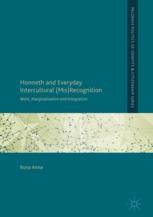

Most ebook files are in PDF format, so you can easily read them using various software such as Foxit Reader or directly on the Google Chrome browser.
Some ebook files are released by publishers in other formats such as .awz, .mobi, .epub, .fb2, etc. You may need to install specific software to read these formats on mobile/PC, such as Calibre.
Please read the tutorial at this link: https://ebookbell.com/faq
We offer FREE conversion to the popular formats you request; however, this may take some time. Therefore, right after payment, please email us, and we will try to provide the service as quickly as possible.
For some exceptional file formats or broken links (if any), please refrain from opening any disputes. Instead, email us first, and we will try to assist within a maximum of 6 hours.
EbookBell Team

4.4
92 reviewsThis book conducts a critical investigation into everyday intercultural recognition and misrecognition in the domain of paid work, utilising social philosopher Axel Honneth’s recognition theory as its theoretical foundation. In so doing, it also reveals the sophistication and productivity of Honneth's recognition model for multiculturalism scholarship.
Honneth and Everyday Intercultural (Mis)Recognition is concerned with the redress of intercultural related injustice and, more widely, the effective integration of ethically and culturally diverse societies. Bona Anna analyses the everyday experiences of cross-cultural misrecognition in a distinctive ethno-cultural group, including social norms that have been marginalised in the contexts of employment. In this endeavour, she deploys key constructs from Honneth’s theory to argue for individual and social integration to be conceptualised as a process of inclusion through stables forms of recognition, rather than as a process of inclusion through forms of group representation and participation.
This book will appeal to students and academics of multiculturalism interested in learning more about the usefulness of Honneth’s recognition theory in intercultural inquiry, including the ways in which it can circumvent some of the impasses of classical multiculturalism.